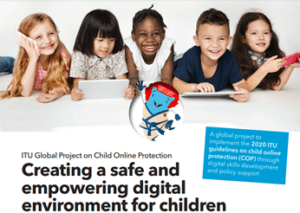ITU Pilot Project

To ensure the creation of a safe environment for all children and young people, the International Telecommunication Union (ITU) developed the Guidelines for Child Online Protection (COP) in 2009. At the request of member states, The Child Online Protection Guidelines (COP Guidelines) have been updated and officially implemented in June 2020, in all six UN official languages (Arabic, Chinese, English, French, Russian, Spanish).
This updated set of materials aims to raise awareness on the scope of child online protection, while providing resources and actual tools that support children, parents and educators in the development of digital skills and digital literacy, as well as industry and government stakeholders in the development of corporate and national COP policies and strategies.
In collaboration with the National Cyber Security Authority (NCA) of the Kingdom of Saudi Arabia, ITU developed the Global Project “Creating a Safe and Prosperous Cyberspace for Children” as part of a strategic partnership launched in December 2020. The Global Project aims to implement the 2020 ITU COP Guidelines through two main pillars: digital skills development and policy support.
For more details, access the ITU dedicated webpage, or check the Project Concept Note (as PDF).

The National Authority on Electronic Certification and Cyber Security (NAECCS) was committed to becoming the first pilot country in the world for the ITU Global Project. The project started in September of 2021 and closed in December of 2023. Within this context, ITU has supported NAECCS in rolling-out the COP Guidelines at the national level through organizing trainings and workshops and preparing materials and awareness campaigns aimed at increasing the capacities and awareness at the national level of all child protection responsible stakeholders and interest groups, especially children, young people, parents and educators.
This page draws attention to the joint initiatives in all relevant sectors to guarantee internet safety for children and young people in Albania. It also presents information about the organized and implemented activities within the framework of the Global Project, with the aim of acting as a reference framework for other European countries, which could be interested in becoming a beneficiary country for the Child Online Protection implementation, funded by the Global Project.

The Albanian language version of the ITU COP Guidelines was presented during the session “National policies to increase the safety of children online” in the framework of the International Safer Internet Day, on February 9, 2021, organized by the National Authority on Electronic Certification and Cyber Security in collaboration with ITU.
The project concluded with the workshop “A decade of awareness for children’s online safety” organized by NAECCS in cooperation with ITU, where NAECCS presented the results of the project and the activities carried out for the implementation of this project throughout Albania. The project focused on interest groups such as children and young people, educators, parents and social workers, as well as entities of the industry sector.
This workshop was attended by the state institutions that are focused on the protection of children and youth, such as the Ministry of Education and Sports, the State Agency on the Child Rights and Protection, Electronic and Postal Communications Authority, Center on the Prevention of Minor and Youth Crimes, State Police, representatives from Internet Service Providers (ISPs), as well as many non-governmental organizations representing civil society, where, during the discussions, they showed their continuous work on child protection, raised issues related to legal gaps and the need for legislation changes, as well as discussed on the bridges of cooperation and potential future projects between competent institutions, civil society and international partner organizations such as ITU.
The project results are as follows:
1. Three promotional videos based on the content of the ITU Guidelines on child online protection, which were disseminated through the Albanian national online media:
- An animated video in Albanian with key messages for children and young people, to educate them about internet safety.
- A video in Albanian language for parents, teachers, and caregivers at the national level to inform them about the risks and child protection online.
- A video in Albanian language for industry operators to provide guidance on how to protect children from online threats.
2. A child-friendly manual in the Albanian language. This material was based on the ITU COP Guidelines and served as a background document for seminars and training sessions for children and youth in selected schools in 12 (twelve) districts of Albania. The manual aimed to provide children and youth with information to further assist them in facing the risks encountered online.
3. A child-friendly manual in the Albanian language. This material was based on the ITU COP Guidelines and served as a background document for seminars and training sessions for children and youth in selected schools in 12 (twelve) districts of Albania. The manual aimed to provide children and youth with information to further assist them in facing the risks encountered online.
4. Elaboration and dissemination of a Unified Message with the most influential industry stakeholders in Albania. The Unified Message aimed to raise awareness on how to increase online security for children and to create a safe cyberspace through practical tips.
5. Elaboration of the Impact Report that assesses the level of awareness and learning (before and after the training) for all trainings and seminars conducted with the following groups:
- children and youth;
- parents, educators and caregivers;
- industry stakeholders.
6. The organization of 12 (twelve) online seminars, where the presentation of the COP Guidelines for children and youth was delivered, encompassing 12 (twelve) districts of Albania. These activities were organized aiming to raise awareness, engage the youth communities in the consultation process on COP-related initiatives, and leverage their digital skills.
7. Organization of 15 (fifteen) online seminars with parents and educators on a national level in 12 (twelve) districts of Albania to share the COP Guidelines for parents and educators. These workshops aimed to increase the number of digitally literate parents, educators, and caregivers so that they are able to protect children and young people online.
8. Elaboration of a flyer with tips on internet safety for children and young people. This content has been disseminated on the official website and on all social media channels of NAECCS, aiming to raise awareness among children and youth online. Also, one hundred copies of the flyer were shared with teachers and government experts and presented as an electronic version at the end of each activity.
9. Organization of 5 (five) workshops with the stakeholders for each industry sub-sector, with the aim of increasing cooperation and coordination between industry stakeholders in the country regarding child online protection. Industry sub-sectors have been selected based on their impact on child online protection. In addition, the training sessions focused on experts working in Social Protection Units, the health sector, and Internet Service Providers.
10. Organizing and delivering 5 (five) workshops for ICT professionals on relevant skills required to strengthen online safety for children in the context of ITU’s focus areas.
11. Organizing and delivering 12 (twelve) capacity building activities for teachers and government experts on relevant skills required to strengthen online safety for children in the context of ITU’s focus areas.
12. Two reports have been prepared:
- The Priority Assessment Report related to child online protection presents a comprehensive analysis of the security measures adopted to protect children from illegal and inappropriate content online at the national level.
- The Report on the Implementation Plan for Child Online Protection Policies that informs on the progress made by the government in the implementation of Child Online Protection Policy in line with the National Cyber Security Strategy 2020-2025, in Albania.
IMPLEMENTED ACTIVITIES
Global Child Online Protectionin Albania
Promotional video for children and the youth
Promotional video for parents and educators
Promotional video for Industry stakeholders
Training of Trainers (ToT) manual
Online trainings for children and youth
Impact Report for children and youth
Impact Report for Parents and Educators
Impact Report for Industry stakeholders
Flyer with key concepts from COP Guidelines
ACTIVITIES
Workstream 1: Digital skills development
Promotional videos targeting children and the youth, parents and educators and industry stakeholders nationally, aiming to raise awareness of the main threats that children might face online, to educate, empower and advice children, parents and educators and Industry stakeholders on how to identify and mitigate those risks, and create a safe cyberspace both at home and at school. | Flyer with targeted and informative knowledge with key concepts from Child Online Protection Guidelines. The aim of the flyer is to raise awareness nationally on the availability of COP Guidelines translated into national language. | UNIFIED MESSAGE targeting Industry operators and aiming to harmonize policies and regulations towards COP across the country. | Social media campaign promoting the project through dissemination of awareness raising materials, aiming to ensure broad population coverage. | Face-to-face and online workshops targeting children and the youth, and Train-the-trainer modules for parents and educators, aiming to raise awareness on the risks and threats children might face when going online, as well as to support the development and enhancement of digital skills and knowledge. Additional child-friendly resources and training of trainer’s manuals are developed within the scope of these workshops. |
|---|
Workstream 2: Child online protection policy support
Workshops targeting Industry operators, aiming to enhance cooperation and coordination between national industry stakeholders. | Online workshops targeting ICT professionals, teachers and government experts, aiming to facilitate the development of sound knowledge and relevant skills required to implement and roll-out ITU COP initiatives within their sectors. | Impact Reports targeting children and the youth, parents and educators and Industry stakeholders, aiming to assess the level of awareness before and after the delivery of trainings, leading to identifying solutions to improve future activities, as well as to enhancing collaboration across sectors. |
|---|



